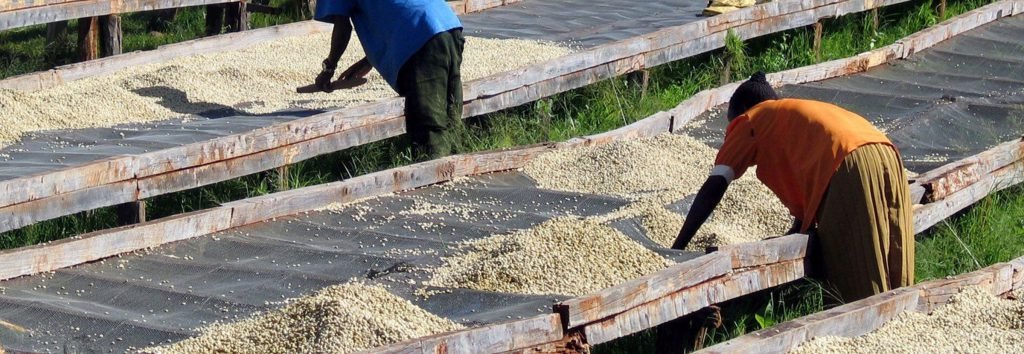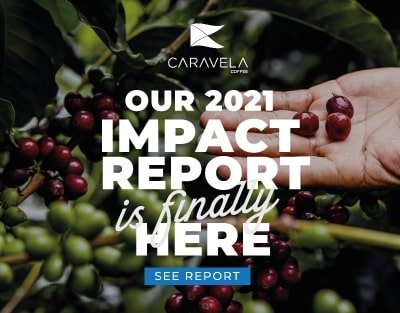In the ever-evolving world of coffee competitions, there has been a significant shift in recent years. These events, which showcase the skill and creativity of baristas and roasters, have become a platform for innovation in the specialty coffee industry. Exciting and exhilarating, these competitions are a hub of talent, where participants push the boundaries and challenge traditional norms. In this article, we will explore how coffee competitions have changed, examining the trends and advancements that have shaped this dynamic landscape.

This image is property of perfectdailygrind.com.
Introduction
Coffee competitions have become a staple in the specialty coffee industry, providing a platform for baristas, roasters, and other coffee professionals to showcase their skills and creativity. Over the years, these competitions have evolved and adapted to the changing landscape of the coffee industry. From the rise of national barista competitions to the emergence of alternative coffee competitions, the coffee competition scene continues to evolve. Additionally, the influence of social media, the impact of sustainability, and the role of judging in competitions have all shaped the future of these events.
Overview of the Specialty Coffee Competition Scene
The specialty coffee competition scene has experienced significant growth in recent years. This growth can be attributed to the increasing popularity of specialty coffee and the desire for professionals in the industry to push the boundaries of their craft. Coffee competitions provide a platform for baristas, roasters, and other coffee professionals to come together, exchange ideas, and showcase their skills. These events not only contribute to the overall development and innovation of the specialty coffee industry but also inspire and educate coffee enthusiasts around the world.
Trends in Coffee Competition Formats
As coffee competitions have evolved, so have their formats. One noticeable trend is the shift towards virtual competitions. With the advent of technology and the convenience it brings, virtual competitions have gained popularity. These competitions allow participants to showcase their skills and compete from the comfort of their own homes or workplaces. Virtual competitions also provide accessibility to individuals who may not have the means or resources to travel to in-person events.
Another trend in coffee competition formats is the incorporation of alternative brewing methods. While traditional brewing methods like espresso and filter coffee remain popular, competitions have started to include alternative methods such as pour-over, Aeropress, and cold brew. This trend highlights the diversity and innovation within the specialty coffee industry.
Additionally, technology plays a significant role in coffee competitions. Platforms and apps have been developed to streamline the competition process, from registration to scoring. Technology also enables real-time feedback and analysis, allowing competitors to improve their skills and techniques. The integration of technology in competitions enhances the overall experience for participants and spectators alike.
The Rise of National Barista Competitions
National barista competitions have gained immense popularity and significance in recent years. These competitions provide a platform for baristas to showcase their skills and represent their countries on an international stage. National barista competitions often serve as a stepping stone for baristas looking to compete in world competitions, such as the World Barista Championships.
Participating in national barista competitions can have a profound impact on baristas’ careers. Winning or performing well in these competitions can open doors to job opportunities, sponsorships, and collaborations with industry professionals. It also elevates the barista’s reputation and recognition within the coffee community, both locally and internationally.
National barista competitions also play a crucial role in promoting local coffee culture. By highlighting the unique flavors, techniques, and traditions of a country’s coffee industry, these competitions contribute to the preservation and celebration of coffee diversity. They also provide a platform for local coffee professionals to connect, share knowledge, and inspire one another.

This image is property of perfectdailygrind.com.
The Evolution of World Barista Championships
The World Barista Championships have a long history that reflects the evolution of coffee competitions. Established in 2000, the World Barista Championships have grown in scale and influence over the years. These championships bring together national champions from around the world to compete for the prestigious title of World Barista Champion.
The competition rules and criteria have evolved to reflect the changing landscape of the coffee industry. Initially focused on traditional espresso-based drinks, the World Barista Championships now include a variety of coffee preparation methods. This expansion allows competitors to showcase their versatility and creativity in coffee-making.
The World Barista Championships have had a significant impact on the global coffee scene. The competition sets standards for excellence in coffee preparation and promotes innovation and experimentation within the industry. It also serves as a platform for the exchange of ideas and techniques among coffee professionals from different countries, ultimately elevating the overall quality of coffee worldwide.
The Emergence of Alternative Coffee Competitions
In addition to traditional coffee competitions, alternative coffee competitions have emerged as a way to celebrate specialty coffee varieties and support small-scale producers. These competitions focus on specific aspects of the coffee industry, such as single-origin coffees, microlots, or unique processing methods. By highlighting these specialty coffee varieties, alternative competitions promote diversity and encourage the exploration of different flavor profiles.
Alternative coffee competitions also play a crucial role in supporting small-scale producers. These competitions often source their coffees directly from producers, providing them with a platform to showcase their products and connect with potential buyers. By promoting sustainable and ethical sourcing practices, alternative competitions contribute to the overall sustainability of the coffee supply chain.

This image is property of perfectdailygrind.com.
The Influence of Social Media on Coffee Competitions
social media has had a significant influence on coffee competitions. Platforms such as Instagram, Facebook, and Twitter have become essential tools for promoting and sharing information about coffee competitions. These platforms allow organizers to reach a wider audience, attract participants, and generate excitement leading up to and during the event.
Social media also impacts competition preparation and performance. Competitors often use these platforms to share their journey, including their training regimen, recipe experimentation, and behind-the-scenes moments. The instant feedback and support from the online community can motivate and inspire competitors to push their limits and improve their skills.
While social media has its benefits, it also presents challenges for coffee competitions. The pressure to create visually appealing and shareable content can distract from the essence of the competition. Moreover, the influence of social media on judges and audience perception can raise concerns about biased judging and the potential for popularity over skill to dictate the outcome.
The Impact of Sustainability on Coffee Competitions
Sustainability has become a key consideration in the coffee industry, and coffee competitions are no exception. Competitions have started incorporating sustainable practices into their operations, from waste management to energy consumption. Organizers are mindful of the environmental impact of hosting large-scale events and strive to make them as eco-friendly as possible.
Furthermore, sustainability is now a requirement in competition criteria. Competitors are expected to demonstrate their commitment to ethical sourcing and fair trade practices. This requirement not only emphasizes the importance of sustainability but also encourages coffee professionals to consider the social and environmental implications of their actions.
The integration of sustainability in coffee competitions not only raises awareness about the importance of ethical and environmentally responsible practices but also sets the standard for the coffee industry as a whole. By prioritizing sustainability, coffee competitions contribute to the long-term health and viability of the coffee supply chain.

This image is property of perfectdailygrind.com.
The Role of Judging in Coffee Competitions
Judging plays a crucial role in coffee competitions, as it determines the winners and recognizes the skills and expertise of the participants. Judges are responsible for evaluating technical skills, sensory abilities, creativity, and presentation. They assess the taste, aroma, balance, and overall quality of the coffee-based beverages prepared by the competitors.
To ensure fairness and consistency, judging criteria and procedures are meticulously designed and followed. Competitions often rely on a panel of experienced judges who undergo rigorous training and calibration. Consistent, unbiased judging is essential for maintaining the integrity and credibility of coffee competitions.
The Future of Coffee Competitions
Coffee competitions are continuously evolving and adapting to the changing landscape of the industry. Looking ahead, several trends and innovations can be expected in the future of coffee competitions.
One potential innovation is the development of new competition formats. This could include incorporating elements of storytelling, where competitors are required to present their coffee journey and the story behind their product. Additionally, formats that emphasize collaboration and teamwork may emerge, fostering a sense of community and camaraderie among competitors.
Artificial intelligence (AI) could also play a role in the future of coffee competitions. AI technology could be used to assist judges in evaluating and scoring coffee beverages, providing objective feedback and analysis. This integration of AI could streamline the judging process and enhance accuracy and consistency.
Furthermore, the growth and globalization of coffee competitions are expected to continue. More countries and regions are likely to establish their own national barista competitions, showcasing their unique coffee traditions and flavors. This expansion will further contribute to the diversity and inclusivity of the coffee competition scene.
Lastly, collaboration and cooperation among competitions may become more prevalent. By sharing knowledge, resources, and best practices, competitions can collectively elevate the quality and impact of these events. Collaboration could lead to standardized competition rules, increased transparency, and enhanced educational opportunities for participants and spectators alike.
In conclusion, coffee competitions have evolved significantly to reflect the changing landscape of the specialty coffee industry. From the rise of national barista competitions to the emergence of alternative coffee competitions, these events provide platforms for showcasing skills, promoting local coffee culture, and supporting sustainability. The influence of social media, the impact of sustainability, and the role of judging all shape the future of coffee competitions. As the industry continues to innovate and grow, coffee competitions will undoubtedly play a vital role in driving excellence, collaboration, and inspiration within the specialty coffee community.


